
5 Ways We Can Keep Your Immune System Strong
December 10, 2025/by Kaplan Center
Want to Take Your Workout to the Next Level Next Year? These Tips Can Help
December 8, 2025/by Kaplan Center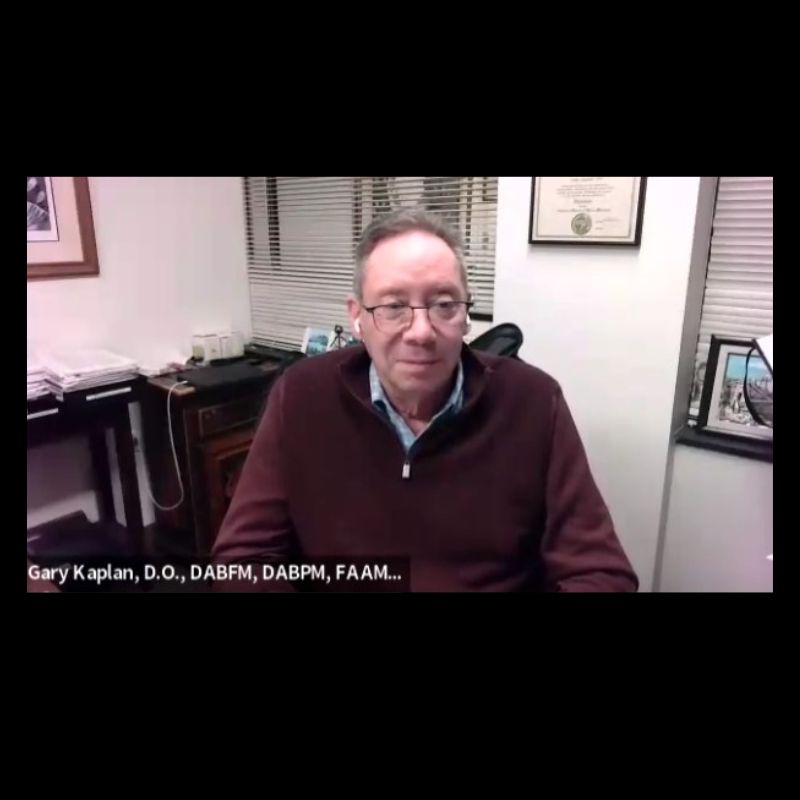
Dr. Kaplan’s Dos and Don’ts of the Holiday Season
December 3, 2025/by Kaplan Center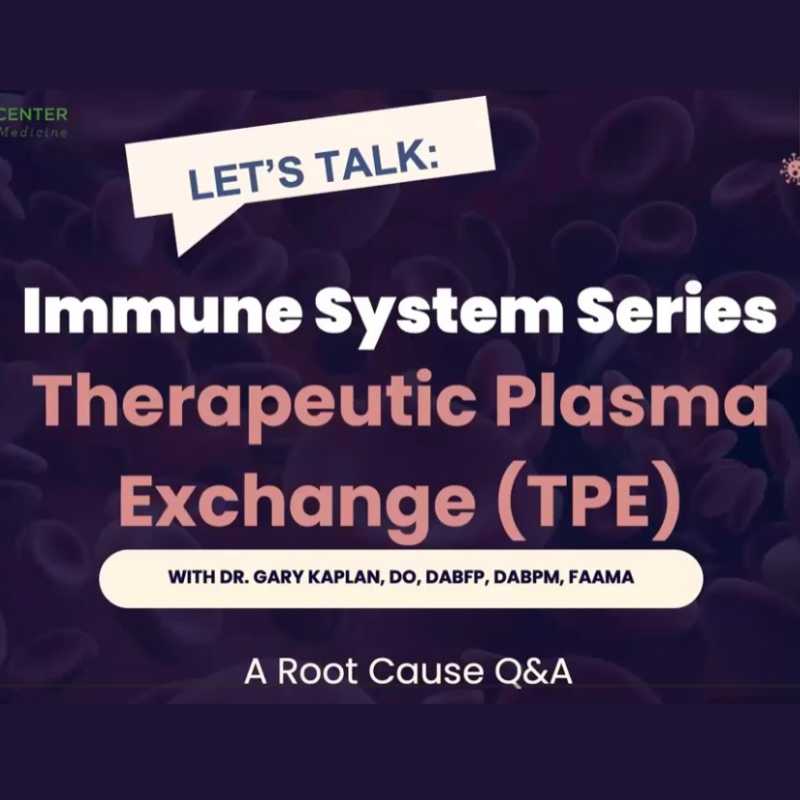
Let’s Talk Webinar – A Root Cause Q&A
December 2, 2025/by Kaplan Center
Navigating Holiday Meals with Gut Issues: Simple Tips for a Comfortable Season
December 1, 2025/by Chardonée Donald, MS, CBHS, CHN, CNS, LDN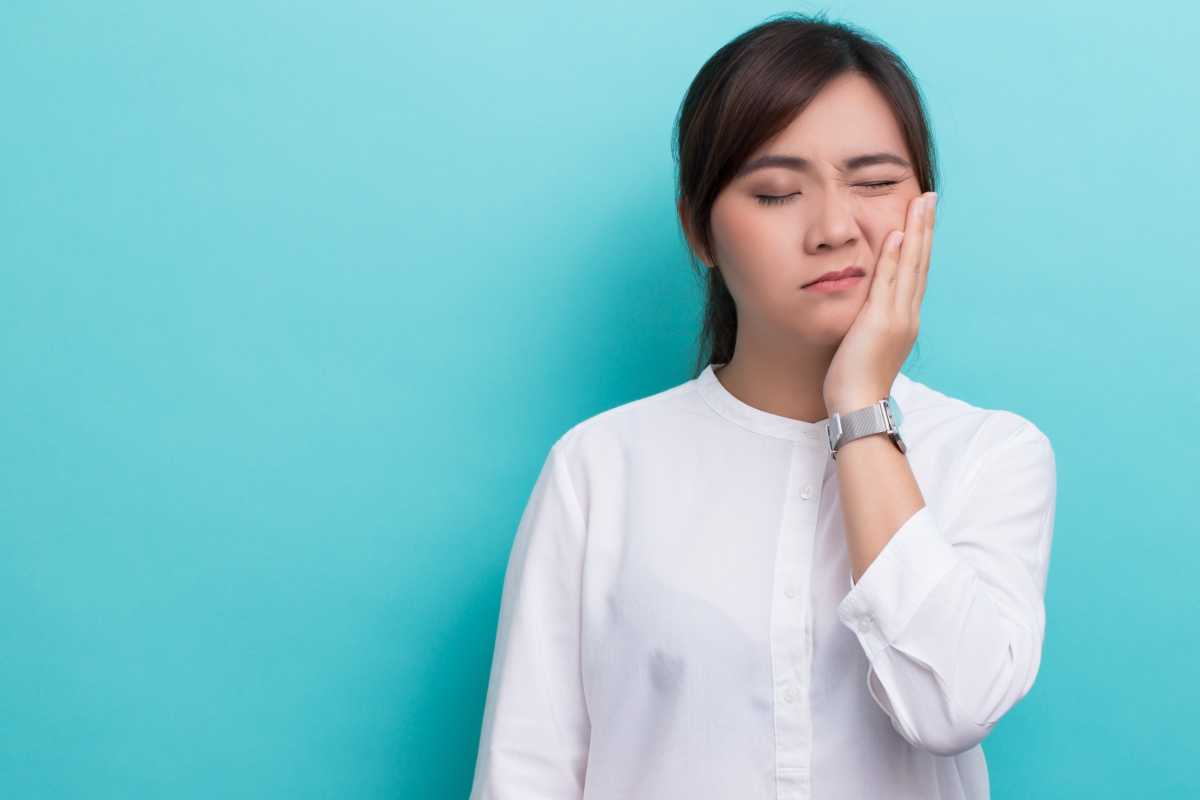
Craniosacral Therapy for TMJ | Say Goodbye to the Daily Grind
November 19, 2025/by Patricia Alomar, M.S., P.T.
From Compassionate Care to Personal Healing: A Letter to My Patients
November 18, 2025/by Kaplan Center
8 Steps to a Healthier Gut—and a Longer, Healthier Life
November 18, 2025/by Kaplan Center
Mid-Life Irritability & Fatigue Improved by Hormonal Balancing
November 13, 2025/by Lisa Lilienfield, MD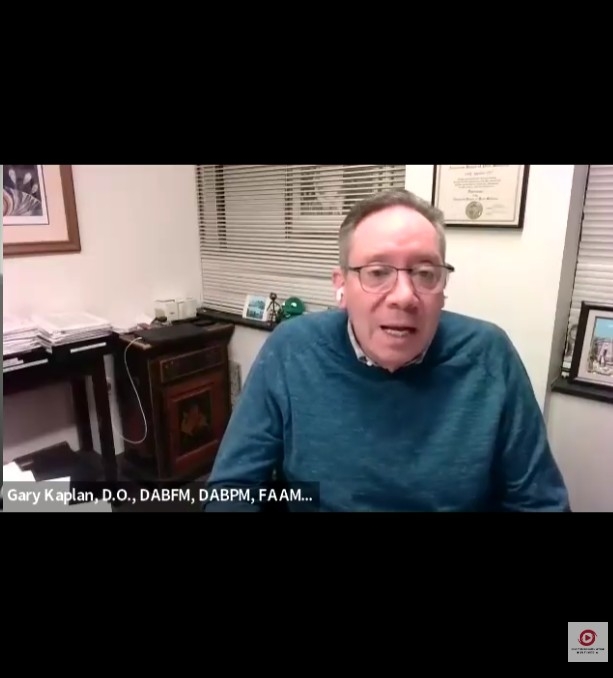
From Challenges to Change: Dr. Kaplan on Healthcare’s Biggest Challenges
October 29, 2025/by Kaplan Center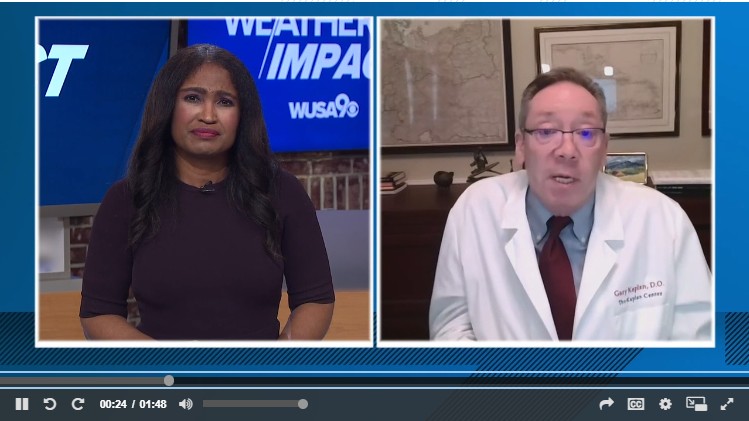
Overlooked Dangers of Mold Exposure and How to Stay Safe – Dr. Kaplan Talks to WUSA9
October 27, 2025/by Kaplan Center
Let’s ‘Fall’ Into Wellness: A Nutritionist-Approved Immune-Boosting Recipe for Cold and Flu Season
October 13, 2025/by Chardonée Donald, MS, CBHS, CHN, CNS, LDN
PANS/PANDAS – When Sudden Symptoms Signal Something More
October 9, 2025/by Kaplan Center
Beating Burnout, A Nutritionist’s Perspective
October 1, 2025/by Chardonée Donald, MS, CBHS, CHN, CNS, LDN
3 Things That Can Happen After Stopping GLP-1s
September 11, 2025/by Chardonée Donald, MS, CBHS, CHN, CNS, LDN
What Families Need to Know About COVID and Flu Season
September 3, 2025/by Kaplan Center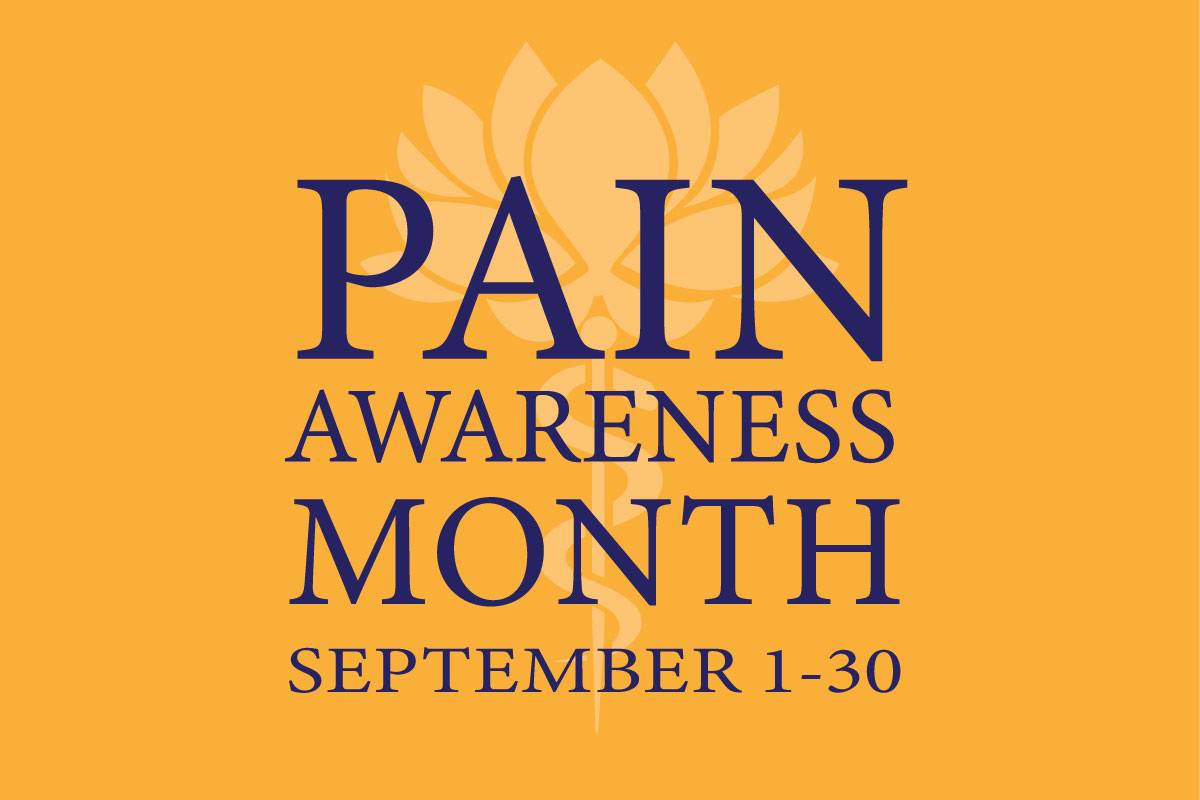
September is Pain Awareness Month
September 1, 2025/by Kaplan Center
Dr. Kaplan Spoke to Northern Virginia Magazine About COVID, Flu, and Immunity — Here’s What You Should Know
August 14, 2025/by Kaplan Center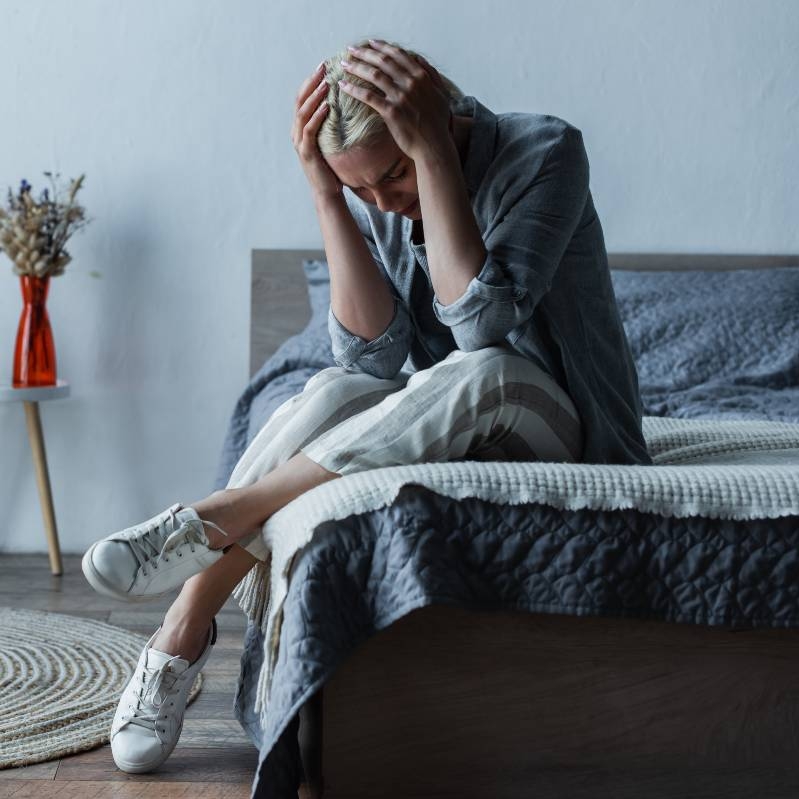
“Why Do I Feel Like Crap?”: The Overlap Between Long COVID and Perimenopause
July 30, 2025/by Kaplan Center
Why People Are Turning to EMDR (and Why You Might Want to Too)
July 23, 2025/by Kaplan CenterAre you looking to improve your overall wellness?
Personalized care you can trust.
Our integrative, non-surgical treatment approach is highly successful in maintaining wellness and also treating chronic pain and illness. For more than 30 years, we have delivered superior, cutting-edge health care in the Washington, DC area.
QuickLinks
Contact Information
Tel: 703-532-4892
Fax: 703-237-3105
6829 Elm Street, Suite 300
McLean, Virginia 22101
Map It
Hours of Operation
Mon – Thu : 8 am – 5 pm, ET
Fri : 8 am – 12 pm, ET
Do You Know What’s In Your Dietary Supplement?
/in Nutrition/by Gary Kaplan, DOIn 2015, several well-known chains – Wal-Mart, Walgreens, Target & GNC – were served cease & desist notifications by the New York State Attorney General’s Office to stop selling their store brand supplements. This followed an investigation that found, not only did they contain several ingredients not identified on their labels as an ingredient, in many cases the herbal supplement itself was not actually present.
The case brought to light some of the major problems in the supplement industry a decade ago, ranging from baseless claims to fraudulent manufacturing and marketing. Unfortunately, these issues still persist today and as the supplement industry continues to grow, so does the potential of harm to unsuspecting individuals. How did we get to this point, and more importantly, what can we do about it?
Many people assume that the US Food and Drug Administration regulates the manufacture and marketing of dietary supplements to the same extent as prescription and over-the-counter medications, but the reality is that it doesn’t. In 1994, the Dietary Supplement Health and Education Act (DSHEA) became law, effectively taking the FDA out of the process of approving and monitoring dietary supplements. Consequently, the manufacturer alone is responsible for ensuring that its supplements are safe, effective, and free of impurities and contaminants. Furthermore, the manufacturer is solely responsible for ensuring that its products’ information labels are “truthful and not misleading.”
Since 2007, supplement manufacturers have been legally required to promptly report any serious injuries or illnesses related to the use of their products. When the FDA is notified that someone has suffered an adverse reaction from taking a supplement, the agency is responsible for investigating the report. The FDA is also obligated to notify consumers about any safety issues they discover.
In contrast, US drug manufacturers are required to make a full report on all adverse events to the FDA, and for an event that is regarded as both serious and unexpected, the report must be made “as soon as possible, but not later than 15 days after” it becomes known.
So where does this leave you, the consumer? Frankly, it can be difficult to determine if a product is going to be safe and effective for you.
Before taking any dietary supplement, consider the following.
1. How can I know if a supplement will be safe and effective for me?
Buy from a trusted source. At the Kaplan Center, we carry pharmaceutical-grade supplements that our physicians have found to be safe and effective after reviewing independent research. We make sure that the supplements we offer are “as labeled,” ie. 5,000 iu of Vitamin D3 on the label ensures that 5,000 iu of D3 is present in each pill in the entire bottle. In addition to reviewing the independent product research, our physicians closely observe how patients respond to products, ensuring that supplements safely complement the other medications and treatments the patient is taking. The majority of supplements we offer at Kaplan Center also do not contain common allergens such as gluten and soy. Our medical staff understands the potential for adverse reactions and are happy to answer questions about the effectiveness and potential side effects of any supplement being considered.
Once you establish a trusted supplier, make sure to read the label on the product packaging. Ask your physician for advice, and use the internet to find any scientific research that may have been conducted on the product. The National Center for Complementary and Integrative Health (NCCIH) and the National Institutes of Health (NIH) Office of Dietary Supplements (ODS) offer free information about supplements on their websites. If you decide to take a supplement, follow the dosing directions on the package or the modified dose recommended by your own doctor.
2. I take some prescription medications; will taking a dietary supplement cause an adverse reaction?
It could, so you should check with your physician before taking any dietary supplement. Also, before starting any new medication (prescription or over-the-counter), tell your doctor about the dietary supplements you are taking. Supplements can interfere with the proper metabolization of medication, and visa-versa.
3. Is it possible that the nutritional deficiency I am seeking to address by taking supplements is a symptom of an underlying medical problem that needs to be diagnosed and treated?
Yes! If you have a nutritional deficiency combined with chronic pain, fatigue or depression, you may have an underlying medical disorder. Make sure to talk with a physician who has successfully treated nutritional deficiencies caused by food intolerances or allergies such as leaky gut syndrome, or autoimmune diseases such as celiac disease, as these can interfere with your body’s ability to absorb vital nutrients. If an undiagnosed medical problem is causing a nutritional deficiency, it should be addressed prior to, or in conjunction with, taking supplements.
Take control of your health. This includes having a discussion with your physician about any supplements you are taking or considering taking. Don’t be tempted by marketing strategies and fancy labeling in an industry where the manufacturers supervise themselves. As a consumer, you should consider product research, lab testing, and safety records when making your buying decisions.
Our physicians have years of experience prescribing herbal remedies and nutritional supplements and will ensure that you are directed to only the highest quality products available in today’s market.
Once restricted to just our patients, in 2021 we opened The Kaplan Center Store to the public. Now, anyone looking to buy high-quality supplements can access our store. Our providers have taken the time to vet every manufacturer we carry and can attest to the fact that they provide a quality product that’s been thoroughly tested and contains the ingredients it claims to contain.
This article first appeared in Dr. Kaplan’s column on MindBodyGreen.com in March, 2015. It was reviewed in April, 2024.
Is Your Medication The Root Of Your Chronic Pain?
/in Digestive Issues, Treatments/by Kaplan Center5 Pills That Might Be Hurting You
By Julia Westbrook
It’s time to stop ignoring the aches and pains and finally live a healthy life.
More Americans are suffering from chronic pain than have diabetes, according to a panel of researchers at the National Institutes of Health. While 29 million people are diagnosed with diabetes, the panel estimated that 100 million Americans live with chronic pain.
While the statistics are staggering, the scary truth is that, despite the apparent universality of pain, there isn’t nearly enough research on safe, effective treatments.
“We learned that sufficient clinical research doesn’t exist to show physicians how best to treat chronic pain in adults, many of whom suffer from multiple health problems,” said panel member and founding director of the Indiana University Center for Aging Research, Christopher Callahan, MD.
Instead, our medical system is heavily reliant on painkillers, both over-the-counter and prescription, despite the fact that, according to the panel, clinicians recognize that pain narcotics aren’t the solution for long-term pain treatment. (Here are 5 reasons over-the-counter painkillers are a bad idea.)
Gary Kaplan, DO, author of Total Recovery: Solving the Mystery of Chronic Pain and Depression, explains that medication—either for treating pains or treating other conditions—can be at the root of chronic pain. “Because of the powerful, short-term effectiveness of many drugs, we’re beginning to experience polypharmaceutical problems, where patients end up taking one drug to treat the side effects of other drugs,” he explains.
“The rough guideline I give my patients about taking medications is this: A drug has to work better than the side effects it creates,” he says. “If it doesn’t, get rid of it.” Of course, it’s important to do so under the supervision of your doctor, he adds.
While it’s easy to tune out the side-effect disclaimer on pharmaceutical ads, you may want to talk to your doctor if you’re experiencing chronic pain and are taking one of these prescriptions:
Statins
Statins are commonly used to lower cholesterol. “They can be the cause of cataracts and unexplained muscle pain. Some studies show they may increase your risk of developing diabetes,” says Dr. Kaplan.
Diet can have a big impact on cholesterol. Consider eating avocados, as research has shown that they’re a food that helps lower cholesterol.
Nonsteroidal Anti-Inflammatory Drugs (NSAIDs)
In the ultimate irony, your painkiller might be causing you more discomfort. “More than 70 percent of people chronically taking NSAIDs—such as ibuprofen (Advil, Motrin), naproxen (Naprosyn), diclofenac (Voltaren), and aspirin (Bayer, Bufferin)—will get ulcers in their small intestines, creating a permeability problem (aka leaky gut syndrome),” says Dr. Kaplan.
Leaky gut is associated with all kinds of painful issues, including food sensitivities, joint pain, headaches, and psoriasis.
Antibiotics
Speaking of your gut, taking antibiotics may be causing more painful inflammation than the infection itself. “Multiple treatments of antibiotics for any reason can profoundly change the gut flora,” says Dr. Kaplan. “Those changes can then damage the intestinal tract enough to create leaky gut syndrome, which will result in inflammation and activate the microglia.”
While he doesn’t dismiss the lifesaving importance of antibiotics, Dr. Kaplan recommends balancing their use with a probiotic supplement. And be sure to support a your gut bacteria with healthy foods.
Opioids
Another counterintuitive finding: Dr. Kaplan says that opioids can heighten your sensitivity to pain. “Additionally, these painkillers—such as codeine, hydrocodone (Vicodin), morphine (Avinza), and oxycodone (Percocet)—can lead to depression, constipation, and sexual dysfunction,” he says.
Instead of popping a pill for your pain, consider meditation as an effective treatment.
Sleeping Pills
Sleep is so important for your health, but popping a pill to get there isn’t the answer. “A chronic reliance on any type of sleeping pill—such as zolpidem (Ambien), eszopiclone (Lunesta), or zaleplon (Sonata)—can, in the short term, make it hard to focus and, in the long run, even shorten your life span,” says Dr. Kaplan. Plus, you might be missing key warning signs of sleep apnea.
Article reprinted from www.RodaleNews.com, Jan/2015
Understanding the Risks of OTC Painkillers
/in Treatments/by Kaplan Center5 Problems With Over-the-Counter Painkillers
By Emily Mann
Pills you pop every day could be causing serious damage in the long run.
Aspirin is hailed as a miracle drug, and there’s not a person among us who hasn’t popped an ibuprofen or acetaminophen to deal with achy joints or a crushing headache.
But if you’re doing that every day, you could be causing long-term damage to your health, says Gary Kaplan, DO, medical director of the Kaplan Center for Integrative Medicine and author of a new book called Total Recovery: Solving the Mystery of Chronic Pain and Depression.
“The biggest misconception people have about over-the-counter painkillers is that they’re completely safe and harmless,” says Dr. Kaplan. “They are neither of the above.” In fact, most over-the-counter painkillers started out as prescription drugs but now are sold at lower doses without your needing to talk to a doctor.
And they’re all bad in their own way. While Dr. Kaplan does contend that low doses of aspirin (81 milligrams) do have some benefits for people with risk factors for stroke, heart disease and some forms of cancer, larger doses taken daily to deal with the pains of daily living do not. “People pop these things like it’s no big deal,” he says. “If you do this every day, in the majority of people, you’re doing real damage.”
Before getting into what that damage is, it helps to understand how these medications work. Aspirin, ibuprofen (sold as Advil and Motrin), and naproxen sodium (sold as Aleve) all fall into a class of drugs called nonsteroidal anti-inflammatories, or NSAIDs. They work by inhibiting prostaglandin, a hormone that can produce pain and inflammation in response to an infection or injury. Acetaminophen (or Tylenol) falls into a different category and seems to interrupt the pain messages your brain receives.
#1: Gut ulcerations
NSAIDs, particularly ibuprofen and aspirin, are rough on your stomach, and they’re just as rough on the lining of your gut. They create ulcerations and inflammation in the gut lining, damage that causes something known as a “leaky gut.” When your gut is leaky, it doesn’t absorb nutrients, which can lead to deficiencies (which can also contribute to pain problems), and problematic proteins and allergens, such as gluten, soy, or egg proteins, can escape, triggering food sensitivities. “Your gut is a very sophisticated filter,” Dr. Kaplan says. “It’s a very complex organ that’s not one to disrupt, but one that we disrupt all the time.”
Furthermore, NSAIDs disrupt the gut bacteria that control your immune system. As a result, you get sick more frequently and you might develop more chronic ailments.
Sixty to 80 percent of people develop gut inflammation within 24 hours of taking an NSAID, Dr. Kaplan says, and 50 to 70 percent of people who take them long term will develop chronic small intestine inflammation. And initially that might present as just feelings of bloating, gas or changes in your bowel movements, but over time, you might start experiencing chronic fatigue or develop food intolerances.
Questions? Give Us a Call!
703-532-4892 x2
#2: Liver damage
Acetaminophen doesn’t cause those gut ulcerations, Dr. Kaplan says. Rather, its problem is that it will damage your liver—sometimes, in unexpected ways. Things like alcohol can interfere with the way your body breaks down acetaminophen, even if you’re taking a normal dose. “That leads to the potential to get a toxic level of acetaminophen in your system, which leads to liver damage,” Dr. Kaplan says. He’s also found that taking too many painkillers that contain caffeine can stress out your liver and interfere with sleep.
#3: Kidney damage
Along with your stomach, your kidneys are a major production site of prostaglandins, the hormones that NSAIDs are designed to silence. In addition to controlling the acid secretions in your stomach, prostaglandins help the kidneys fulfill their function of removing proteins and waste from your blood. Too many prostaglandin-inhibiting NSAIDs can interfere with that process, leading to kidney damage and a buildup of toxic waste by-products in your bloodstream. “As soon as we start seeing damage to kidneys, we tell people to get off all anti-inflammatory medications,” Dr. Kaplan says.
Furthermore, prostaglandin produces inflammation in response to damage your body is experiencing. “Inflammation is not always a bad thing,” he adds. “It’s critical for repair—inflammation cleans up damaged tissue and brings in new cells to repair it. When inflammation gets disrupted, the normal healing process gets disrupted.”
#4: Heart disease
You may remember a prescription painkiller called Vioxx that was pulled from the market a few years ago. The reason? It caused heart attacks, and it’s not the only one. “It’s a lower risk than with Vioxx, but all NSAIDs pose a risk,” says Dr. Kaplan. NSAIDs block an enzyme called COX-2, which works with prostaglandin to protect your arteries. When both are silenced by chronic use of over-the-counter painkilllers, your risk of heart disease increases.
#5: Hypersensitization
Here’s an ironic fact: Painkillers can heighten your susceptibility to pain. While this phenomenon has been seen mostly with prescription opioids (such as Vicodin or Oxycontin), studies have shown that acetaminophen and NSAIDs can have the same effect on headaches. “It’s called a rebound headache,” Dr. Kaplan says. “They dull your response to pain, so you need more medications to get to the same place. And you end up developing increased sensitivity to pain.”
So are we all supposed to just grin and bear it if we have a headache or a sore knee? “The occasional use is fine, less than once a week,” Dr. Kaplan advises. “But if you have pain that requires that you take over-the-counter pain medication on a regular basis, you need to seek medical attention.”
Ultimately, Dr. Kaplan’s beef with painkillers is that they aren’t dealing with deeper health issues. “Doctors have to start looking at pain as a symptom and not the disease,” he says. “We’re better off addressing the problem. We need to understand where the pain is coming from.”
Published on www.RodaleNews.com on April 11, 2014
We are here for you, and we want to help.
Our goal is to return you to optimal health as soon as possible. To schedule an appointment please call: 703-532-4892 x2